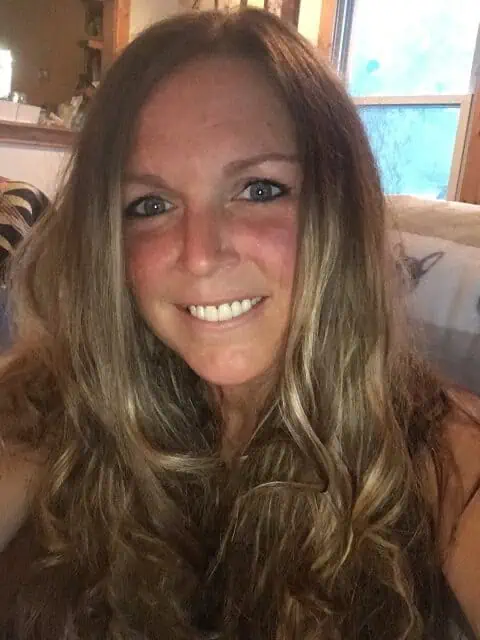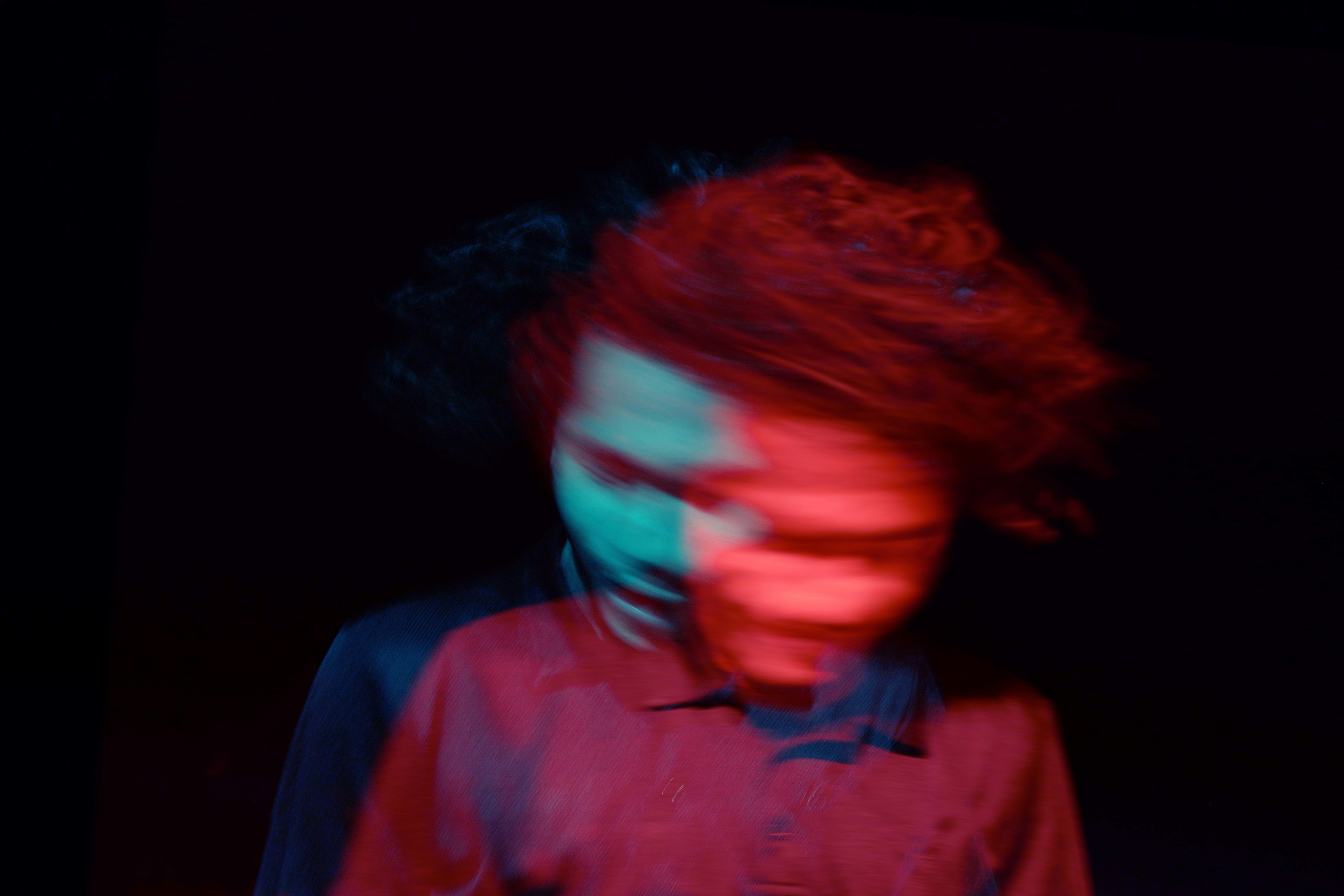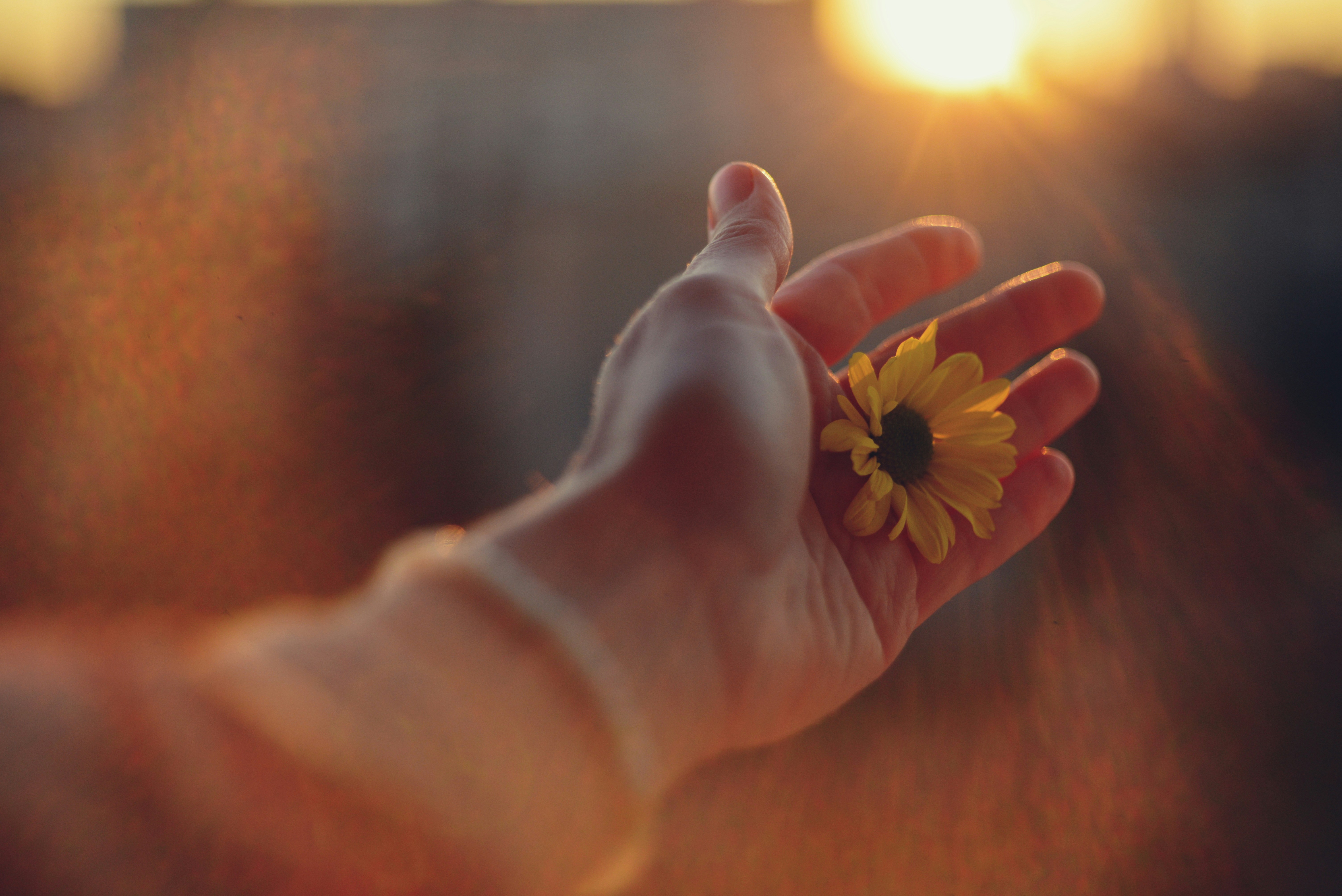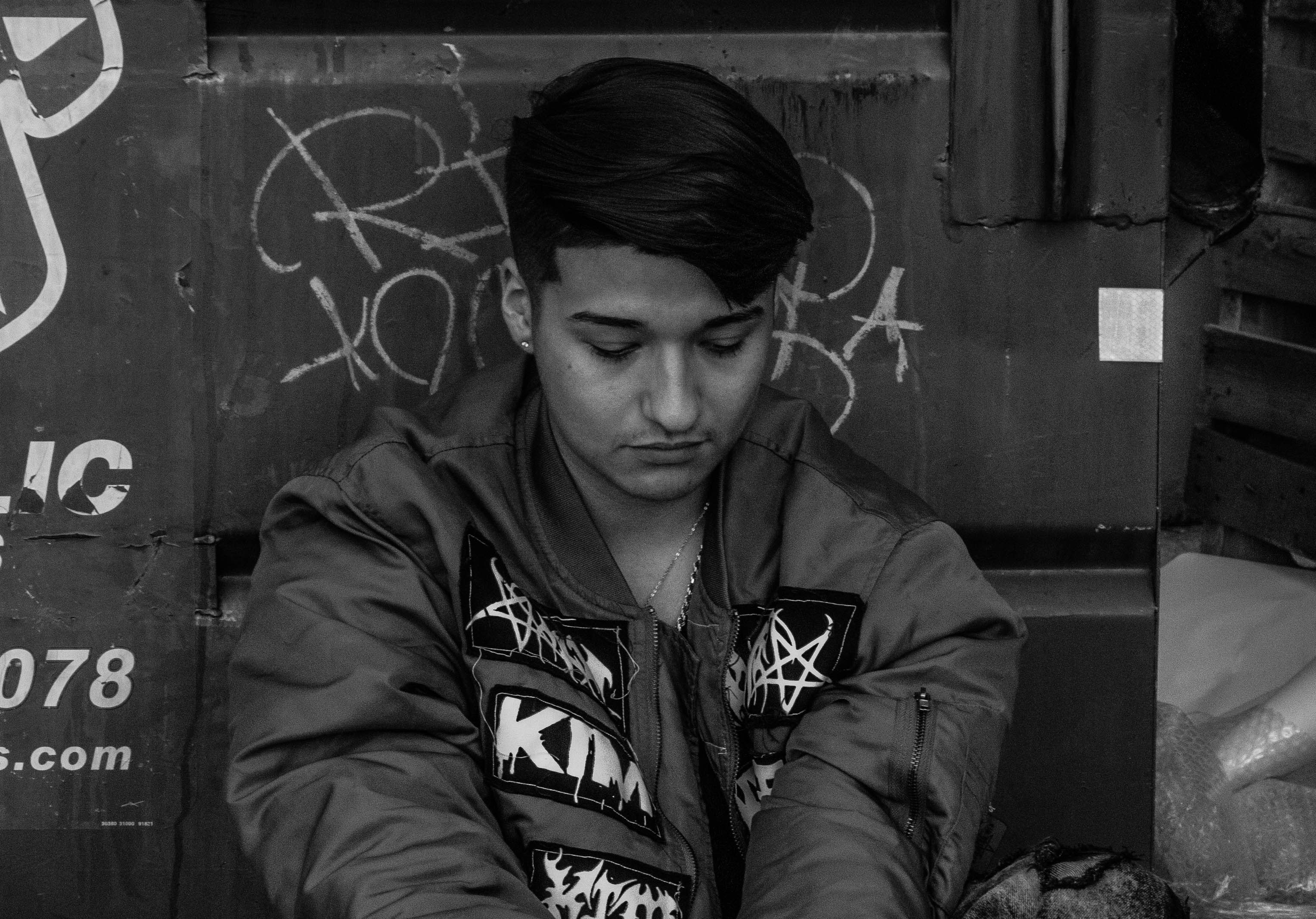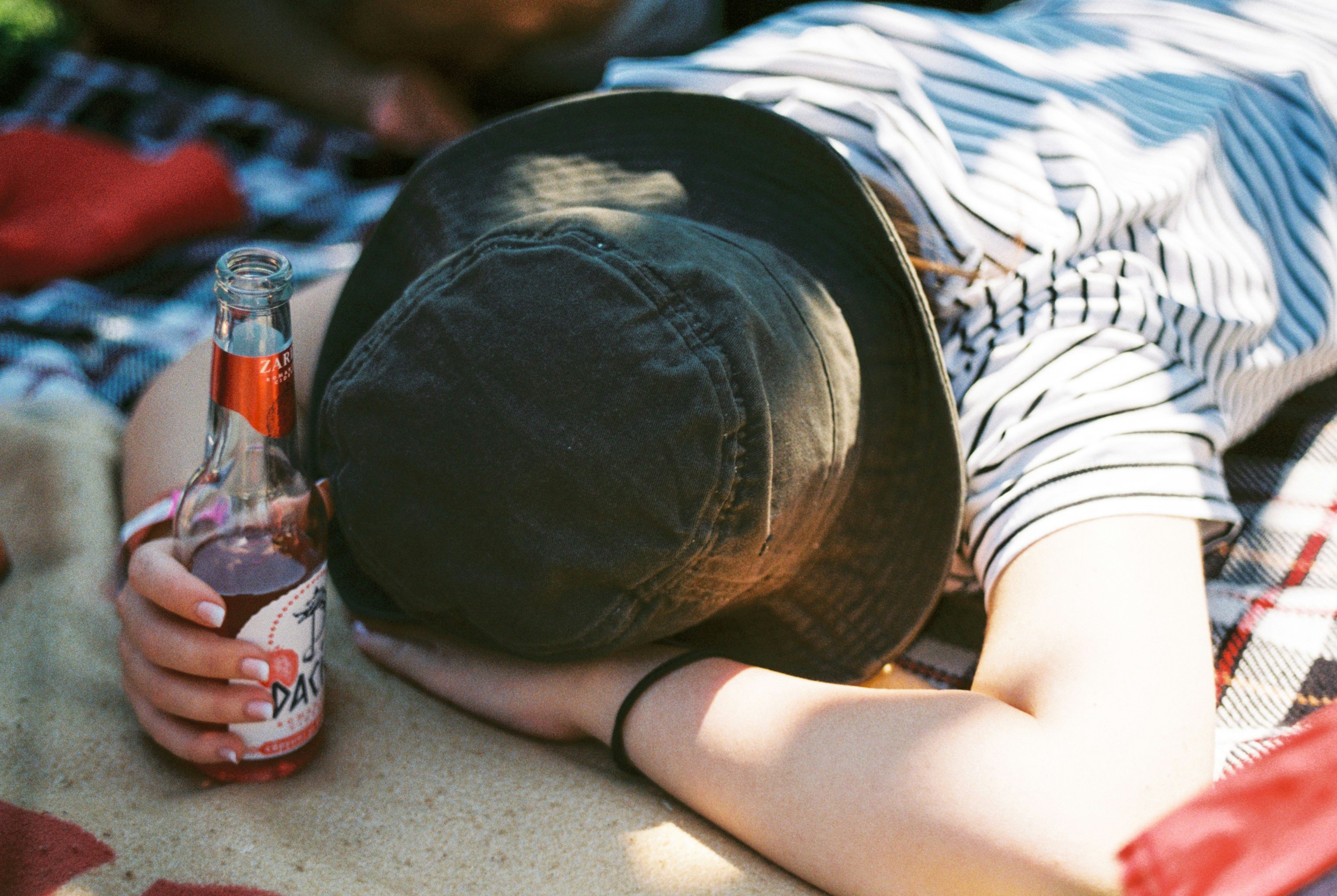- Sobriety Date: 3/27/2021
- Mother of two
- Wife
- AA Advocate
Rachel M. struggled with trauma, grief, and substance abuse as a high schooler and young adult. Now, a loving wife and mother of two, Rachel is thriving in recovery.
Transcript
Rachel drank alcohol or used a drug every single day in high school. After her two family members passed away a month apart. Her habits spiraled out of control. Now a wife and mother of two in recovery, Rachel credits her sobriety to her time and mountainside, taking it one day at a time. And much more. Her story starts with her childhood.
I was an only child from a mother who was 19 years old when she had me. My biological father was a drug addict and alcoholic who really wanted nothing to do with me. So my mother raised me on her own until I was about 8 and then she met a man who I call my dad now. And they got married. He had two older sons, and he also owned a bar.
So, needless to say, from an early age, I hung around with a lot of people that drank. Even my mother, when she was single, would take me to bars with her. But I didn’t really pick up for the first time until I was about 12. By the time I was a freshman in high school, I was using a drug or drinking every single day.
I don’t think a day went by without me consuming some kind of mind-altering substance.
I was going through some childhood trauma that I was keeping to myself. I wasn’t telling anybody. It was difficult for me as a kid. So when I drank I didn’t need to feel anything, you know? It was like all these feelings of shame and feeling worthless – all these negative feelings I felt about myself made my child really difficult, you know? When I used, I didn’t have to feel all that pain. So for me, I was like I found my way.
 My brothers were definitely big influencers. So, you know, I was doing cocaine as a freshman. And meanwhile, most people weren’t even smoking weed yet, so I was doing a lot of things before anybody I knew was trying this kind of stuff. So I barely graduated—like by the skin of my teeth—and then I moved out like immediately. I was like, OK, I gotta go.
My brothers were definitely big influencers. So, you know, I was doing cocaine as a freshman. And meanwhile, most people weren’t even smoking weed yet, so I was doing a lot of things before anybody I knew was trying this kind of stuff. So I barely graduated—like by the skin of my teeth—and then I moved out like immediately. I was like, OK, I gotta go.
I got a full-time job. But I spent a lot of time at my dad’s bar—spent a lot of time at a lot of bars. Everyone knew my dad and everyone knew who I was. So even though I wasn’t old enough to drink, everybody let me. So it was very easy for me. I drank whatever and whenever I wanted, and I also knew a lot of people because of that. So they had the drugs they wanted and it was just daily, you know, drinking, drugging, hungover.
And when I was 19, my grandmother died. She was like a second mother to me and it was very, very hard on me. A month later, my brother, who was closer to my age—we were close—committed suicide. You know, I just lost 2 of the most important people in my life… It was just the ache in my heart.
I was so mad at God and I thought I drank and drove a lot before that? Well now, it was like game on. I got into more serious drugs. Drinking for me was always a daily thing. But when I lost my brother and grandmother, I definitely didn’t want to feel anything.
So I think at that point is really when I started a downward spiral. People were saying, “Maybe you drink too much, Rachel.” Or, “Maybe you don’t need to do so much cocaine in one day.” Just little things. In high school, I hung out with people. So, like, I didn’t feel like I was, you know—but as I was getting older they didn’t do as much drugs as I did.
I had very rare sober moments in my life in those years after that. My life was just out of control and so I did go to a few rehabs in the state. Not really willingly.
It was more or less like you’re going. I was just trying to please my family. Even though in the back of my mind I knew I had a problem.
I think I knew I had a problem for a long time but. I guess I just wasn’t willing—I think it scared me. Like oh my god, I can’t drink anymore. I can’t imagine if I can’t drink for the rest of my life. I never looked at it like one day at a time. I looked at the big picture. So I did a couple outpatient-based programs. But after my rehab, soon I was using just as hard as I ever was, and I took some pills to try and kill myself.
Because I couldn’t—looking back I don’t think I wanted to die. I just couldn’t live the way I was living anymore and so I had taken a bunch of pills. And thank god I told somebody and told them that I did that. I didn’t even remember telling them.
And I just remembered saying I don’t want to leave this hospital until I go to like long-term rehab. And I want to go far away because everywhere I went I was still very close— I know that they say, you change your location, you still take the same person with you. But for me, I knew so many people and just needed to be where I couldn’t walk out of rehab.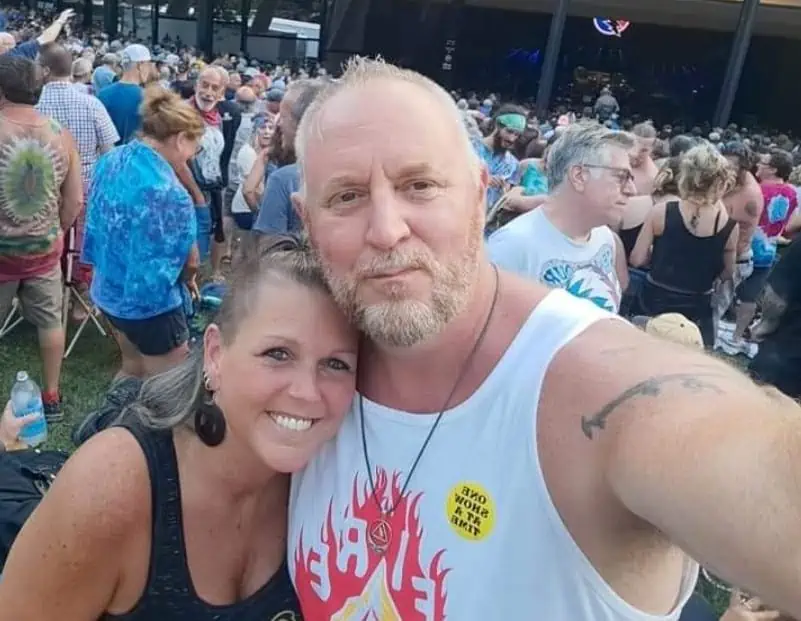
I said, “I’m not leaving this hospital until. I go straight from here to rehab.” Because I’m going to die. I knew I was going to die. And for me, trying to take my life was obviously a new bottom.
I had car accidents, I was killing my family and slowly killing myself. But to actually take pills and have this kind of plan to be done with was definitely on the lower side for me.
I still remember my first day there. It was different than any rehab I had gone to before.
Being so very far, I mean that that’s weird to say, but it made a difference for me. I liked that I was in the middle of nowhere, away from any drugs and alcohol. Like I was there to get help. Like OK, let me just see what happens. And I think it was important for me to keep an open mind.
I just had to listen to what these people were saying. So, you know, I think that was really cool about Mountainside. Like it was the first time I was clean and had significant— even though it was just 30 days— but it was for me. I had 30 days!
I met my sponsor at the Friday meeting. I. looked forward to that meeting every week. It was just great and I think for the first time I really started to believe in AA. Like these people are all sober and maybe I can do this too. I think what was important is that when I was in active addiction I felt like I was the only one. I felt like there was nobody like me.
I have all these problems. I have this trauma I went through. All these feelings of negativity about myself. Meanwhile, there are just so many people like me and it was cool to see that I didn’t have to do this by myself. And by the end of my drinking, I was all I had. It was me, myself, and my misery. Like there are people like me and they’re sober.
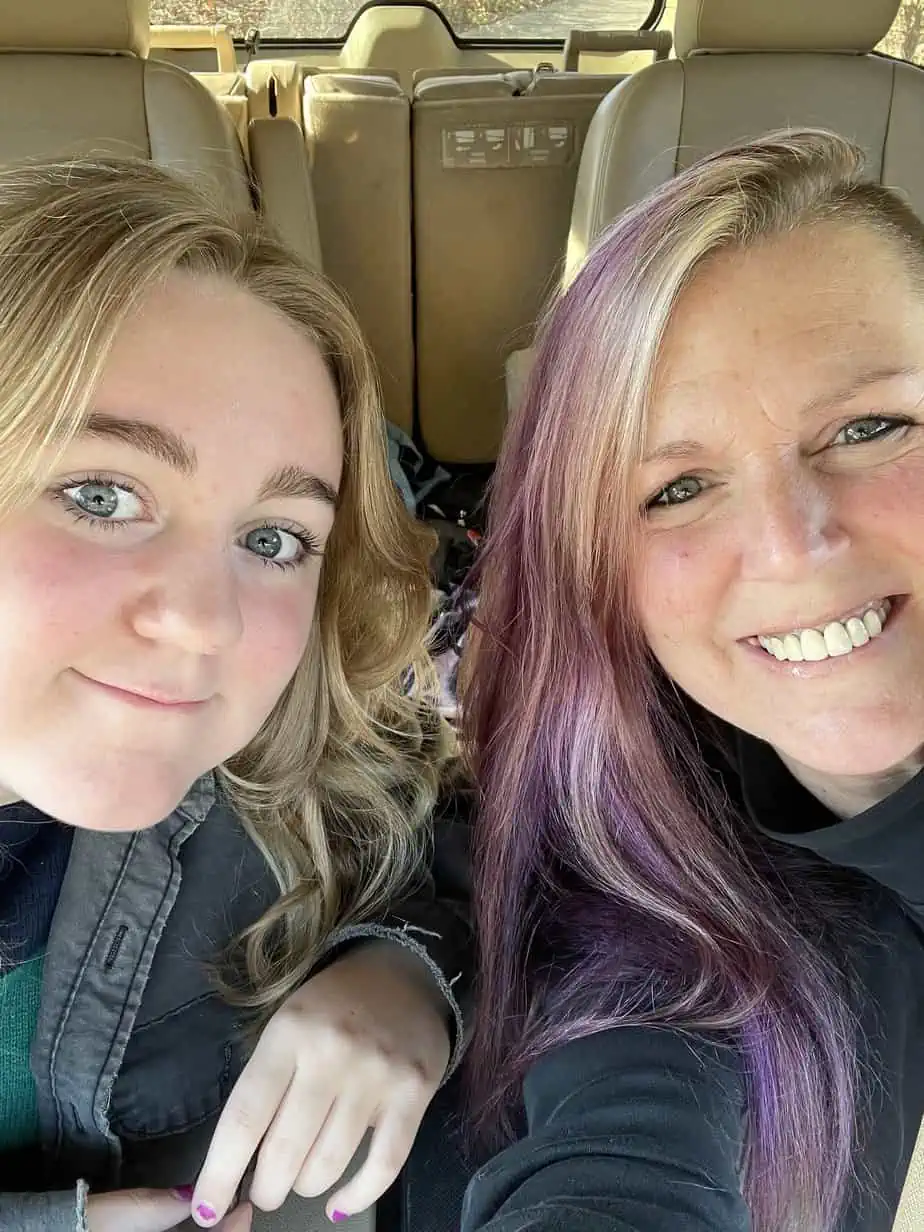 I met the woman who I ended up asking to be my sponsor. I had a great counselor. I dived into my trauma. And then I went to phase four. And a lot of the people that I was in rehab with were also going to the program.
I met the woman who I ended up asking to be my sponsor. I had a great counselor. I dived into my trauma. And then I went to phase four. And a lot of the people that I was in rehab with were also going to the program.
It was just a very cool experience. I got to go to outside meetings. I worked at the cafe and I actually met my husband when I waitressing there. Eventually, I got married, stayed sober, did meetings, and chaired them.
I started working the steps and then I had two kids. I had a job that I worked—which I no longer do because I was there for 17 years and it got to me.
I could never have imagined my life today. You know, I have a 12 year old son and 14 year old daughter who are my world.
Today, I can be a stay-at-home Mom. Being full-time and working 55 hours a week. Trying to juggle your sobriety. You wouldn’t have any of that if you weren’t sober. But my job got to be too much and I was like OK enough of this. It was taking away from my society.
It was taking away from my family and that’s not gonna work for me. Today, my sobriety is like #1 because I know without it, I would have nothing. I would have absolutely nothing and I actually would be dead. I think a lot of us feel that way in recovery.
I have a sponsor who I speak to multiple times a day. She’s awesome. She’s been my sponsor now for a couple of years. We’re working the steps. I go to an AA meeting pretty much every day. And I don’t go because I have to, I go because I want to. I want AA and I need it in my life to stay sober. My kids know I’m sober. They know their father—My husband’s sober.
They have been to many meetings with us. My children have been going to meetings since they were in diapers.
Thank God it’s like that and I can do that. We’ve been to conferences and they’re very aware of AA. And that’s a really cool thing. They share that I’m sober with their friends or, you know, if my son goes somewhere and people are drinking, he’ll say, “Mom, they were drinking.” And I said that’s OK. It’s OK for other people but for Mom and Dad we just can’t. Like, respect it.
I think as they’re getting older they probably realize that if we weren’t, then their life would probably be a lot different. So like to them it’s so important. So yeah, I mean, the proverbs have come true for me. I never thought my life can be— what I envisioned for my life, certainly was not this. It’s better. 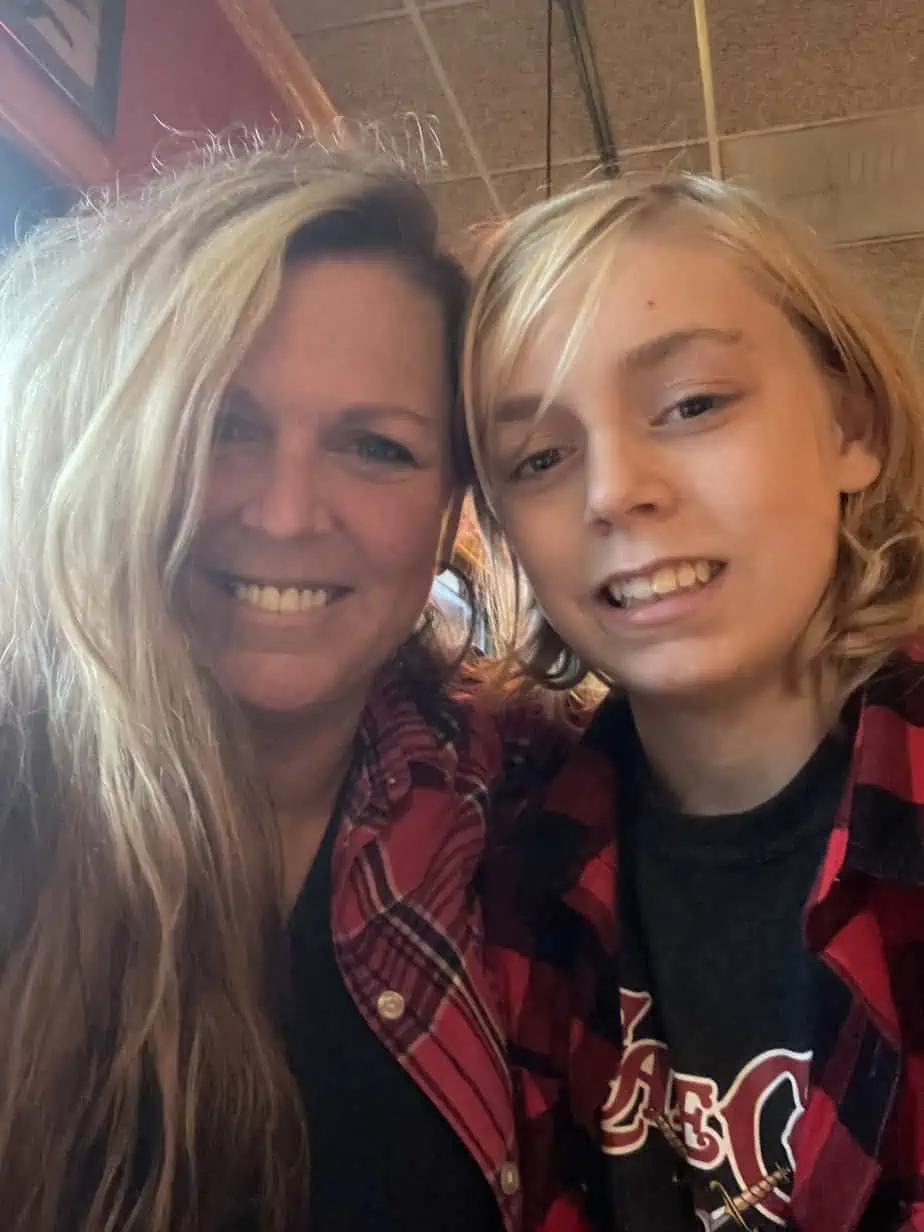
Another important thing is my relationship with my higher power. I always believed in God, but I think for a long time, I just couldn’t bear to talk to him. When I lost my brother, I was just angry. Even when I had gotten sober. I still was angry at him, so it was hard for me.
My sponsor said to me, “Why don’t you just tell God you’re angry at him?” And I was like OK. So I went to church and sat there by myself. I knelt down and started praying. I just let him have it. And you know, had this little conversation.
And from that point on, I felt like. I could really be honest with him. Even when I didn’t necessarily feel, or if I wasn’t going to say something nice— it didn’t matter. Just be honest with my God. That’s huge. And I love that.
This program is a spiritual program. And it’s not religion cause that steered me away a little bit in the beginning. But spirituality and your God can be anything you know. But I just have to get over that anger, you know, and rebuild my relationship with him.
I think my biggest advice would be you have to have an open mind.
You can’t think I’m never going to drink again. I’m never going to use. It has to be like AA says, one day at a time. If you can do one day at a time. That’s all you have to do is just for today, If you just keep an open mind, then you’ll hear what you need to hear.
And just have faith because all these other people did it before you and they’re just like you. You know what I mean? So I think it’s just important to know that you’re not alone either.
Sobriety is a beautiful, beautiful thing. I mean, I would take my worst days over my best day using anyway. If I’m sober and I’ve got God in my life, I can get through whatever. When it comes down to it, it’s just me and my God. I think it’s such a powerful program. This helps so many people.
I think someone has to be willing to go to any length to stay sober, and that’s the absolute truth.
As Mountainside celebrates 25 years in service to the recovery community, we will be highlighting stories from alumni, their family members, and Mountainside staff, whose own paths to recovery inform and inspire the work we do each day. Be sure to check our 25th Anniversary page for new stories every month.
Want to be featured? If you are a Mountainside alumni interested in sharing your recovery story with us, please email kevin.doyle@mountainside.com
If you or a loved one is struggling with addiction, Mountainside can help.
Click here or call (888) 833-4676 to speak with one of our addiction treatment experts.

 By
By 